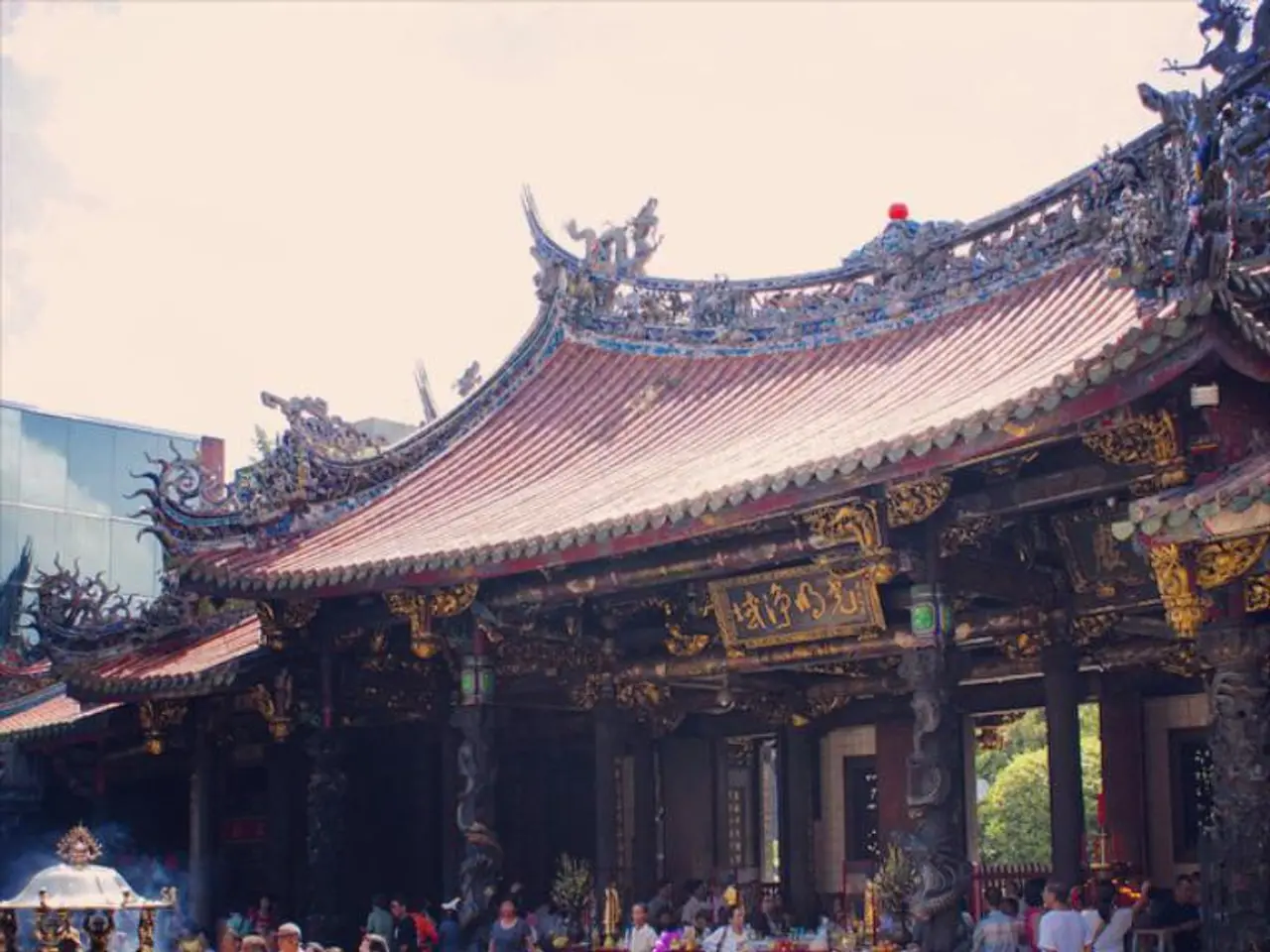Gathering inside the establishments, featuring Japanese celebrations:
In the vibrant heart of Tokyo, nestled amidst the bustling nightlife of Kabukicho, lies a world unlike any other - the enigmatic realm of host clubs. These exclusive establishments originated in the 1960s, growing from the city's entertainment district, and have since become a significant part of Japanese pop culture and media.
Host clubs are unique venues where charismatic men, known as "kyabajō," offer an unforgettable experience to primarily female clientele. Dressed to impress, these hosts exude style, elegance, and sophistication, engaging in flirtatious banter, animated discussions, and sharing humorous anecdotes. The focus is not just on serving drinks but on creating an atmosphere of indulgence, where clients can escape the pressures of daily life and indulge in a charming world of fantasy.
The clubs are adorned with luxurious decor, plush seating, and elegant lighting, creating an atmosphere of exclusivity and charm. The commercial side of host clubs revolves around profits, competition, and social status, with hosts ranked based on their popularity, charm, and ability to generate income.
Culturally, host clubs differ from Western nightclubs or gentlemen’s clubs. The emphasis is on enjoying conversation and emotional connection rather than physical contact or shows. Hosts cultivate intimacy through flattery and attentive dialogue, often encouraging customers to return frequently and spend lavishly. This emotional manipulation can lead some women to develop dependency or incur heavy debts.
However, host clubs also provide a safe and controlled environment where clients can find solace, offering emotional support, listening, and fostering a sense of camaraderie. This reflects a deeper social pattern of seeking companionship and escape within Tokyo’s nightlife.
Despite their allure, host clubs have had a controversial reputation due to predatory behavior, financial exploitation, and ties to illegal activities. This led to a significant crackdown by Tokyo authorities, targeting violations like undisclosed drink prices, underage patrons, and illegal business operations.
Historically, the emergence of host clubs follows Japan’s long tradition of regulated pleasure quarters like Edo’s Yoshiwara, where entertainment and companionship were commercialized in structured districts. While host clubs are modern and male-focused venues attracting female patrons, they fit within the broader continuum of Tokyo’s nightlife culture rooted in complex social and economic dynamics around intimacy, entertainment, and leisure.
For those considering a visit to a host club, it's essential to adhere to the dress code, etiquette, and expectations. Smart casual attire is a must, and respect and courtesy are key. Understanding the concept and respecting personal boundaries are crucial for a harmonious and pleasant atmosphere. Following club rules, being mindful of time and costs, and embracing the experience are also important considerations.
In summary, host clubs offer a unique space where clients can free themselves from social expectations and enjoy an experience of liberation and empowerment. They are exclusive establishments in Tokyo's nightlife where women can enjoy drinks and conversations with professional hosts, creating memories that last a lifetime. However, it's essential to understand the dynamics of the host-client relationship and the controversies surrounding these clubs to fully appreciate their charm.
The host clubs, with their luxurious decor and smartly dressed hosts, provide an exclusive lifestyle experience blending entertainment and personal conversation, creating an atmosphere of indulgence and emotional connection. The hosts' style, elegance, and sophistication shape the clubs' image, offering an enigmatic world of fantasy for clientele seeking escape and companionship.








